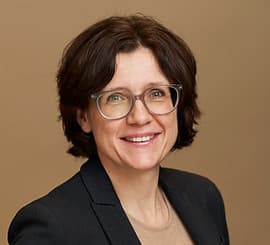Only 1% of Math Teacher Professional Development Programs Show Robust Empirical Effectiveness

Winnipeg, MB – Dr. Anna Stokke, a mathematics professor and vocal critic of contemporary education trends, recently ignited a debate on social media, questioning the efficacy and financial prudence of programs offered at teachers' conferences. In a pointed tweet, Stokke stated, > "Do parents know that this is the nonsense that teachers are being fed at teachers’ conferences? There is absolutely no way any district should be spending money on programs that promote such obvious snake oil. Great way to ensure kids DON’T succeed in math." Her comments highlight long-standing concerns regarding the quality and impact of professional development in mathematics education.
Stokke, known for her advocacy for explicit instruction and foundational math skills, has consistently challenged "progressive" or "fuzzy math" methodologies, which she argues often de-emphasize memorization and procedural fluency. Her critique extends to the California Math Framework and similar curricula, which she believes detract from effective math learning. This recent tweet underscores her belief that many professional development offerings fail to equip teachers with truly effective strategies, potentially hindering student achievement.
Supporting Stokke's concerns about program effectiveness, a recent meta-analysis of K-12 math teacher professional development (PD) programs revealed a striking statistic: only 1% of studies met rigorous empirical criteria demonstrating a link between PD and student achievement. The analysis indicated that effective PD tends to be short-term (under one year), combines both content and pedagogy, and is often delivered via online video or is "reform-initiated." Conversely, approaches like cooperative learning PD showed negative effect sizes, suggesting some programs may be counterproductive.
School districts across North America allocate significant resources to teacher professional development. Estimates suggest that districts spend, on average, between 2% and 8% of their operating budgets on PD, translating to hundreds or even thousands of dollars per teacher annually. For instance, some reports indicate an average of $18,000 per teacher per year for in-person PD, while other analyses cite averages of approximately $200 per pupil. The challenge of accurately tracking and evaluating the return on this investment remains a persistent issue, with many PD initiatives lacking clear evidence of positive impact on student outcomes.
The ongoing debate, amplified by experts like Dr. Stokke, calls for greater scrutiny of professional development content and a stronger emphasis on evidence-based practices. As educational bodies, including the U.S. Department of Education, begin to prioritize "explicit and systematic teaching" in math, the pressure mounts for districts to ensure that their substantial investments in teacher training yield tangible improvements in student learning rather than promoting what critics label as "snake oil."